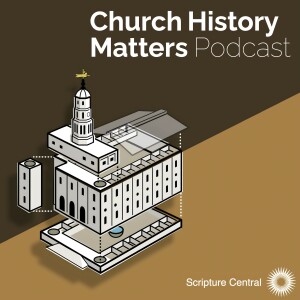

Jesus speaking in John 17v11 says “Now I am departing from the world; they are staying in this world, but I am coming to you. Holy Father, you have given me your name; now protect them by the power of your name so that they will be united just as we are.”
From this verse of Scripture, we see that Jesus prayed to the Father that his body the church would be involved in a united and dynamic relationship (John 17v11). By the way, when referring to church here, I am speaking of the one universal and invisible church, and not the local visible churches. There can only be one church, because there is only one body through which salvation can be found within. It is unique and it is Jesus Christ’s Bride, Body and Temple. There is only one Christ, ergo there must only be one church. The unifying fellowship people have with each other is founded only upon Jesus in what Jürgen Moltmann calls the “assured and consistent fellowship of Christ.” There was only one Cross, therefore there can only be one Kingdom and church. There is only one God, therefore there could only be one people and one church known by its unity (Ephesians 4v4-6). Jesus stipulated that there is one shepherd and one flock, when referring to Himself and his followers the church (John 10v16).
Unity however does not infer uniformity. On the proviso that core beliefs are maintained (1 Corinthians 15v3-4), there appears to be room for some digression regarding secondary beliefs (Romans 14v1–15v13). Individual churches have different local needs to be faced, and have therefore dissimilar requirements. For a group to claim that they alone have the ultimate truth and are the only true church is systematic behaviour of evil cults and sects.
Self evident of this approach are the differing worship styles of the New Testament church. Whilst most persevered with a Judaist worship model, others followed a different format (1 Corinthians 14v26-40). To further illustrate the problem faced by having one universal church yet a multitude of visible local churches.
There are four distinct approaches which help explain this tension: imperialist, platonic, eschatological and biological.
- The Imperialist view is favoured by the Roman Catholic Church, which claims that it is the only one church that can be observed as having unity, thereby signifying its claim to be the one true church.
- The Platonic viewpoint claims that there is a basic distinction between the historical church and the ideal church.
- The Eschatological viewpoint follows Calvin’s theory of the invisible church becoming visible and known only when revealed at the last day and all present disunity will be abolished.
- The Biological approach takes the view that the historical church develops and evolves like tree branches.
As for the sacraments, the Eucharist is celebrated together, hence its name in some traditions as Holy Communion. Baptism is done with others as a means of fellowship, with others performing the baptism and acting as witnesses. The means by which this hallmark can be tested in any church is revealed in the function of fellowship. If fellowship exists and is functioning, then the church can be seen to be participating in this hallmark and be ‘one’.
FellowshipOne particular aspect of the church being ‘one’ is that its members have fellowship, resulting from walking with one another (1 John 1v7). The church is a gathering of humans, engaging in human activities with human “customs, texts, orders, procedures and possessions” through the power of the Holy Spirit.
What is fellowship? This is rooted in the words koinōnia and koinōneō, which are defined as a mutual sharing together, and not merely a mutual association. It was both in having fellowship and giving fellowship that the New Testament church understood fellowship.
Why fellowship? When Christian disciples fellowship with each other, God is glorified as a result (Romans 15v7). It is as a collective body that the Church fellowship grows in grace and maturity together, overcoming by grace, the weaknesses of each individual member (Ephesians 4vv12-16). Another reason for fellowship is for mutual exhortation “toward love and good deeds” (Hebrews 10v25). By this the lives of individual church members can live a consistent godly life, particularly if sins are confessed to each other (James 5v16).
New Testament exhortations to live holy lives are said to groups (Romans 6vv1-23). Victory is also seen in the eyes of a fellowship, rather than singular individuality (1 Corinthians 15v57; 1 John 5v4). Whilst God deals with us as individuals, it is through fellowship that God strengthens the individual, for individuals are “complemented, supported, healed and compensated” by other Christians. These are all very good reasons why all Christian Disciples need to find a Church to attend!
How do we fellowship? Biblical fellowship sees the church having common purpose (Psalm 133v1-3), belief (Acts 2v42), hope (Hebrews 11v39-40) and needs (2 Corinthians 8vv1-15). Just as Christians have fellowship with the Father (1 John 1v3), Jesus (1 Corinthians 1v9) and the Holy Spirit (Philippians 2v1), so do they have with each other (1 John 1v7). The things a fellowship shares are, but not limited to, possessions (2 Corinthians 8v4), sufferings (Philippians 3v10) and the Gospel (Galatians 2v9; Philippians 1v5). By participating in His suffering and having fellowship with Jesus through his own sufferings, Paul was able to enter a deeper relationship with Jesus.
For more to think about please do read Ephesians 4vv1-16. Ask yourself the following questions, writing them down if you can, and see how you respond or react to them. Then why not share your answers with your spouse or a close friend, so that you can pray over any issues together.
Q1. What effort can I make to show the world the unity of the Church?
Q2. What can I say if somebody thinks a Christian disciple doesn’t have to be attached to a local church congregation?
Q3. What results from me doing the work God has for me in His church?
More Episodes
All Episodes>>You may also like
Create Your Podcast In Minutes
- Full-featured podcast site
- Unlimited storage and bandwidth
- Comprehensive podcast stats
- Distribute to Apple Podcasts, Spotify, and more
- Make money with your podcast












